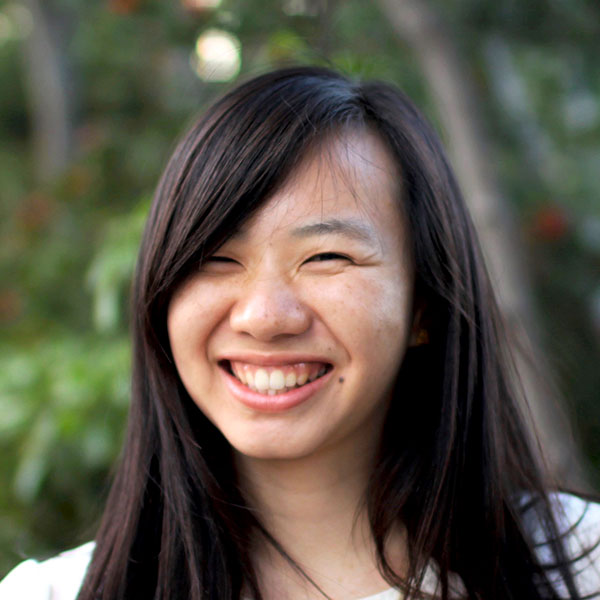Most people learn they have a cancer-causing genetic mutation, called a pathogenic variant, only after a cancer diagnosis. Carmen Ng, an MPH student in Public Health Genetics at the UW School of Public Health, considers this a failure of testing.
“If all these people knew they had this variant, there’s things they could do,” she says, such as more frequent cancer screenings and, sometimes, prophylactic medication or surgery.
For her master's thesis, Ng is testing user experience with a website that aims to address this problem. ConnectMyVariant was created by Ng’s thesis adviser, Brian Shirts, associate professor of laboratory medicine, and by Ginger Tsai, a research coordinator and genetic counselor, both at UW Medicine. The website aims to help people who know they have a pathogenic variant identify and contact family members at risk of having that same variant.
Connecting family members to increase genetic testing
ConnectMyVariant functions like a search engine for pathogenic variants and links to existing platforms, where participants can share information about their testing and their diagnosis. Some pathogenic variants, even in commonly mutated genes like BRCA1, are so rare that people who share the same variant are usually related. When two such people identify each other on ConnectMyVariant, they can work together to identify family members at risk.
Ng illustrates this by drawing a family tree. She indicates distant relatives who share great grandparents. Maybe they both separately learn that their cancer was caused by this rare variant. If they find each other using the variant search, they can work backwards – she traces the line that connects them on the family tree – and identify shared relatives who may have inherited the same variant. The site provides information on building such a genetic family tree based on your own and other family members’ genetic test results.
Assessing Website Usability
Ng and Shirts know that ConnectMyVariant users are often already burdened with a recent cancer diagnosis. The stakes are high because the relatives of people in these situations often don’t get genetic testing, so if users can understand enough of the genetics and genealogy, they can potentially save lives.
To assess website usability, Ng assigned research participants, who were previously diagnosed with pathogenic variants, certain tasks to complete on the site while sharing their thoughts aloud. It’s a test commonly employed by companies trying to ascertain usability of their products, but Ng chose the methodology to understand the very specific hurdles people without genetic expertise face in using the site.
While Shirts, Tsai, and Ng wrote the site to be approachable for a non-scientific audience, they’re hampered by the variability of the genetic test results users may have received. To use the variant search feature, users must identify their unique “coding change” from their genetic test. This was a struggle for many of Ng’s study participants.

She explains how genetic test results often aren’t user-friendly or consistent. “When people get genetic testing results back, they often can’t understand them. There are so many different types of genetic testing reports, so we can’t just say, ‘go to the top left corner.’”
There are grants in place to test whether the site can generate enough user engagement to allow people to connect with distant relatives. But even if users can't identify a shared ancestor, Shirts hopes they will benefit from the connection and will motivate each other to do outreach within their own families. Ng suspects this is the case. She says some of the participants in her study expressed a renewed interest in talking with close and distant family members about testing.
A Complete Service
Right now, Ng and Shirts check and complete each pathogenic variant entry in the ConnectMyVariant index. When asked if this is time-prohibitive, Shirts said he’d actually like the personal assistance to be a prime feature of the site. He recently received funding from the Brotman Baty Institute for Precision Medicine to offer a free service, simpler than genetic counseling, to help people connect with relatives and encourage their relatives get genetic testing. An hour-long phone conversation, he says, can result in life-saving testing for multiple family members.
Shirts is hopeful that between the variant search, the educational material, and the engagement with users, ConnectMyVariant can empower people who have pathogenic variants to help their own family members avoid a cancer diagnosis.
As of now, the website is available while being improved and developed – they are hoping to continue to generate user feedback. Ng, who is originally from San Diego, is continuing to edit the site while writing up her study and will graduate with her MPH in public health genetics at the end of the summer. She plans to continue to work in the public health sector of cancer genetics.
